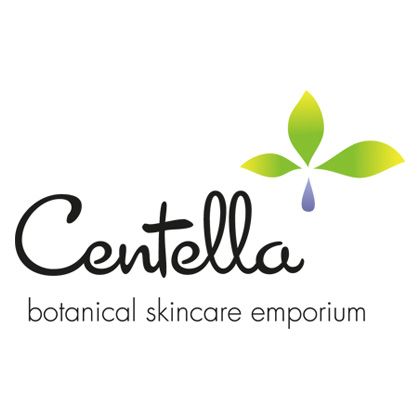When you see the word “alcohol” in your skincare product, what kind of image appears in your mind?
Most people would associate alcohol with the clear liquid
that dries the skin and sometimes causes irritation. That is only part of the
story, though, since “alcohols” are a large family of substances and some
alcohols especially the fatty alcohols are very good for our skin.
Alcohols That Are Bad for Our Skin
If you see the word “alcohol” alone in the ingredient
list, it is the same alcohol contains in our beer, wine, and hard liquor. It is
also called ethanol or ethyl alcohol. Many times, you see the word SD
alcohol such as SD alcohol 40, SD alcohol 23-A. SD alcohol means specially
denatured alcohol, and it means an additive called denaturant is added to the alcohol
to make it undrinkable, serving to protect the public in cases of accidental
ingestion and a deterrent to those wishing to drink it. This alcohol is bad for
your skin since it is drying and irritating, even though it has antibacterial,
antiseptic, and astringent properties.
Denatured alcohol is commonly used in skin care to ensure formula stability, emulsify ingredients, enhance skin absorption, or to preserve the product. This obviously means that in some cases, alcohol denat is crucial to the performance of the product.
Another liquid alcohol is isopropanol,
or isopropyl alcohol, or IPA. Isopropanol is used similarly to ethanol,
except it is more toxic than ethanol but less drying to skin.
A less commonly used alcohol in skincare products is methanol, or methyl
alcohol. It is the lightest alcohol, quite toxic, and should be avoided.
Below is the “bad alcohol” list. Don’t buy a skincare
product if one of these appears near the top of the ingredient list.
·
alcohol, ethanol, ethyl alcohol
·
isopropanol, isopropyl alcohol, IPA
·
methanol, methyl alcohol
· benzyl alcohol (usually used as a preservative and acceptable if it appears towards the end of the ingredient list)
Alcohols That Are Good for Our
Skin 
A group of good alcohols is fatty alcohols, and they don’t
look anything like the liquid alcohols above. Rather, most of them look like
white pearls. They gave a slippery feel, and they protect and soften our skin.
Most of these fatty alcohols are derived either from vegetable sources such as
coconut oil or palm oil, or from petroleum.
Cetyl alcohol is usually extracted
from coconut oil, although it was originally derived from whale oil, after it
was discovered in 1817. Its name cetyl also comes from the Latin name for
whale, cetus. Cetyl alcohol helps to form protective barrier on the skin so
water cannot evaporate, thus locking in the moisture. Stearyl alcohol is
another commonly found fatty alcohol in skincare products. It is derived from
cocoa, shea butter, or from animal fat. Stearyl alcohol acts as a good emollient,
and as an emulsifier — helping oils and water to form smooth mixtures.
Cetearyl Alcohol is a
mixture of cetyl alcohol and stearyl alcohol, usually derived from coconut oil.
It acts as an emollient, keeping moisture in the skin.
Lanolin alcohol is
another commonly used fatty alcohol, and it is derived from the oil glands of
sheep’s wool. It is a great emollient, and a good emulsifier. However, some people
find lanolin alcohol slightly irritating.
Below is the “good alcohol” list.
·
myristyl alcohol: emollient
·
cetyl alcohol: emollient – stearyl alcohol:
emollient, emulsifier
·
cetearyl alcohol: mixture of cetyl alcohol and
stearyl alcohol: emollient, emulsifier
·
behenyl alcohol: emollient, emulsifier
· lanolin alcohol: emollient, emulsifier. may cause allergic reaction in some people

About your Emulsifiers and Stabilisers
Beeswax
(Emulsifier)
Beeswax is the major component of honeycomb. It is secreted in tiny flakes from the underside of the abdomens of worker bees, and moulded into honeycomb. Beeswax is obtained, after removal of the honey, by melting the honeycomb, straining the wax to remove impurities, and pressing the residue to extract any remaining wax. The purified wax is then poured into moulds to solidify. Colour and quality are preserved by melting the wax in water, avoiding direct heat. The wax may also be bleached. As an effective emulsifier, it is used for candles, for artificial fruit and flowers, and for modelling wax. It is also an ingredient in furniture and floor waxes, leather dressings, waxed paper, lithographic inks, cosmetics, and ointments.
Cetearyl
Alcohol (Emulsifier)
Cetearyl Alcohol is a mixture of naturally derived fatty alcohols consisting predominantly of cetyl and stearyl alcohol. Normally derived from coconut oil, the ingredient offers very efficient viscosity building properties to creams, lotions, and other personal care products, including anhydrous formulations such as body polishes or oil blends. This fabulous ingredient can be utilized to create both oil-in-water and water-in-oil emulsions. In addition to enhanced viscosity, Cetearyl Alcohol also imparts its own emollient properties in the formulation.
Cetyl
Alcohol (Stabiliser)
Cetyl Alcohol is a, 95% pure and natural, fatty alcohol fromcoconut oil. It is usefully employed in emulsions and anhydrous formulas to increase viscosity (thicken) as well as to act as a stabiliser in order to prevent the oils and waters from separating in the final product.

Alcohol is very vital component for natural skin care and it is mostly used in almost every products as well. As this post defines some of them are good and some are bad as well. Thanks for sharing this post.
ReplyDeleteThis comment has been removed by the author.
ReplyDeleteThank you for sharing:) this is very nice and very good information,, jika ingin tampil kece dan fashionable bisa berkunjung ketempat kami https://liazhrstore.blogspot.com/
ReplyDeleteThanks for sharing. Your blog is more informative. This is very nice article and very good information. We really enjoy your blog & content. If anyone looking for Best Skin Clinic Melbourne Then visit us. We provide best skin care services.
ReplyDeleteKorean skin care